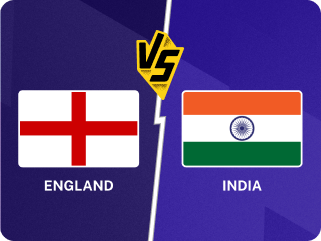
Twenty months on from overseeing England’s T20 World Cup victory in Australia, Matthew Mott is no longer England’s limited overs head coach.
Ultimately, three wins over 12 Full Member nations over two meek title defences in India and the Caribbean were enough for Mott and England to call time on a partnership that started so well.
The performances over the two global events fell well short of expectations. Given England’s resources, recent history in white-ball cricket and the talent at their disposal, the 50-over World Cup was an unmitigated disaster while a semi-final finish in the Caribbean masked a similarly unconvincing campaign, particularly against top opposition.
There were memorable tactical missteps. England’s decision to bowl first with just one spinner in their XI in 38-degree heat against South Africa in Mumbai was indefensible. Mott’s post-game justification of the call, citing historical data at the venue, spoke of a lack of conviction in his own cricketing instincts. If data so emphatically supercedes what your eyes tell you, it is not unfair to wonder what the point of a coaching staff actually is.
England’s messaging around selection throughout that tournament was muddled. Jason Roy’s initial inclusion and subsequent exclusion before England even flew out to India set the tone for what was to follow. Throughout the tournament, England were clearly unclear about how to balance their XI; it was not unusual to see up to three changes between games. Sam Curran and Liam Livingstone – in key roles as all-rounders – both started the campaign in the XI and finished it on the outside looking in. The lack of trust instilled in Harry Brook and Gus Atkinson also spoke to a staleness around the playing personnel. They were two of only three squad members aged under 30 and both impressed when afforded the opportunity.
The T20 World Cup defence was less catastrophic but similar themes emerged. England were mullered by India in the semi-final where they were once more lacking in imagination. Take the non-use of Tom Hartley as an example. England’s semi-final was held at Providence in Guyana, a venue notorious for its suitability for spinners. England opted to include both Curran and Chris Jordan – two death-bowling all-rounders, neither of whom bowled their full allocation of overs – over Hartley, even though he was the squad’s only left-arm spinner against an India top order brimming with right-handers. Moeen Ali, one of the three spinners in the XI, went unbowled; England’s quicks went at 10 runs per over while Livingstone and Adil Rashid’s eight overs cost just 49 runs – India’s spinners went at 5.27 runs per over. There was also a sense that Brook was underutilised at five.
Understandably, England have sought change. Fundamentally, the job he was signed up for – overseeing a gentle transition alongside Eoin Morgan, the godfather of English white-ball cricket – no longer exists. But Jos Buttler must shoulder as much, if not more, of the blame for the series of decision-making errors that contributed to England’s downfall at both tournaments. He is fortunate to have clung on to the captaincy.
It also shouldn’t be underestimated how difficult a job it has become. Limited-overs cricket has taken a back seat to Test cricket in the Rob Key era to the point where Mott was rarely able to field his best players in bilateral series heading into either recent World Cup campaign. Joe Root, for example, went over a year without an ODI appearance in the run up to the 2023 World Cup, while Brook’s exposure to 50-over cricket was limited. In T20 cricket, Pakistan’s two games in May were the only time England were at full strength between the 2022 and 2024 World Cups.
Personnel wise, England are also much weaker than they were two years ago. There is a need for a regeneration but it is not abundantly clear which players should be elevated into the senior squad from the domestic game. Of the 2019 World Cup vintage, only Buttler, Rashid and Jofra Archer can be considered as being anywhere near their best; the golden generation of white-ball batting talent were remarkably bunched in terms of age and have generally declined together.
Brook and Phil Salt aside, the next generation are yet to really come through. For one reason or another, the best young batting talents in the country haven’t kicked on in limited overs cricket, be it Test players like Zak Crawley, Ollie Pope and Dan Lawrence or franchise regulars like Tom Banton, Will Smeed and even Livingstone whose game has recently stagnated.
Recruiting a desirable replacement will not be straightforward. Broadly speaking the best T20 coaches have IPL gigs, a tournament that still occasionally overlaps with England limited overs games, while the top English coaches don’t even get a look in for their county’s premier domestic white-ball tournament.
Mott is the chosen fall guy for the dual World Cup failures but there are underlying issues that make the England white-ball head coach job particularly challenging and however well qualified his successor is, it will not be a straightforward transition. After all, they will be replacing someone in Mott who has overseen four World Cup wins, one of which, lest we forget, for England.
Follow Wisden for all England updates, including live scores, match stats, quizzes and more. Stay up to date with the latest cricket news, player updates, team standings, match highlights, video analysis and live match odds.







